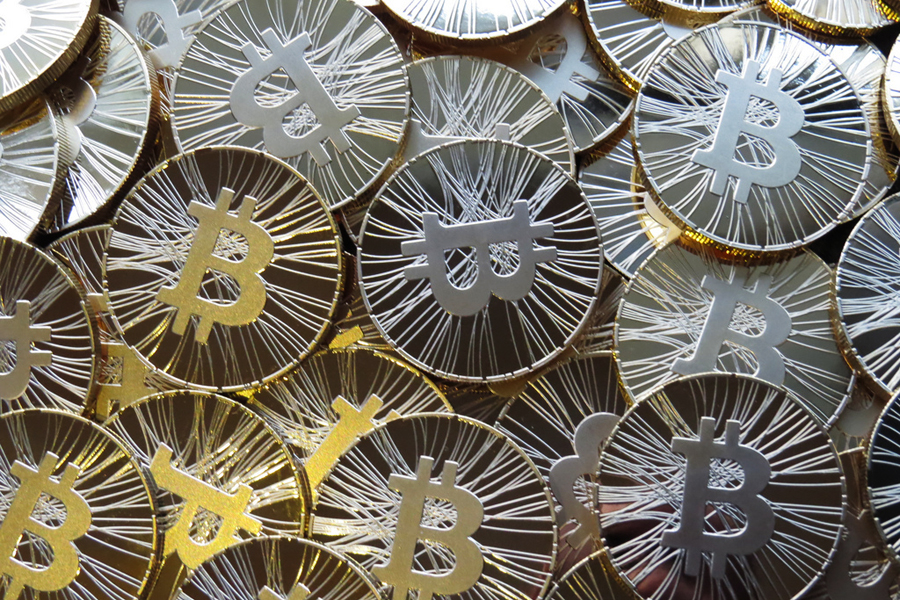Champing at the Bitcoin: A New Currency Explained

I’m old enough to recall the dawn of the internet. Like many, I was flabbergasted when this thing called PayPal came along. Do you mean to tell me that you can just type in your credit card numbers, and someone on the other end will actually process your account, accept the charge and send you the item in the mail? And that’s legal? This was the moment when the web changed for me. If people could find ways to communicate but also to do business without ever being in the same room, then anything was possible, right?
Guess what? That moment occurred less than 20 years ago. It took longer for some of us to come around, but virtual currency has pretty much become part of our collective psyche. It’s something we use every day.
Then Bitcoin arrived.
And now I’m having a similar “WTF” moment about where we’re going with this. At first it was easy to dismiss Bitcoin as another internet fad that only super nerds do—kind of like flash mobs or the Harlem Shake. But you know what? The internet is something that super nerds do, so who’s to say that Bitcoin won’t catch on?
Then I saw this recent story: A Southampton homeowner is putting his lovely, 1,700-square-foot cottage on the market…for BITCOIN. That’s right, if you come up with $800,000 in dollars or slightly over 950 Bitcoins, this little fixer-upper can be all yours. C’mon, who’s in?
Seriously, here are four key questions to ponder before you enter the Bitcoin
Terrordome.
What Is It?
Bitcoin is a virtual currency founded around 2008 by a mysterious Japanese tech entrepreneur who nobody has ever seen. Other computer types started trading Bitcoins for random internet junk, because that’s what nerds on the internet do. Soon, an exchange was born. Because there’s no real backing or organized market behind Bitcoin, prices have spun and gyrated like the Tasmanian Devil on PEDs; from lows of $.30 to highs of over $1,100.
Fun side note: The Winklevoss Twins (made famous by allegedly getting frozen out of Facebook by Mark Zuckerberg) were early Bitcoin speculators, I mean adopters.
What Is It Not?
Proponents like to think of Bitcoins as the Euro of tomorrow, a purely free market currency not affected by political spin. I’m not so sure. Until it gets the full faith and credit of a legitimate government (sorry, North Korea) or a huge corporation (I’m looking at you, Apple) it will have a difficult time catching on with the mass public—despite the occasional home owner in Southampton.
Why the Fuss?
Simple: because it’s crazy! Citizens are ascribing real value and making real transactions using lines of code that have no basis in fact and no owner. We don’t even know who “makes” or creates Bitcoins, or how their perceived value (or whatever you call it) can be manipulated by programmers.
The speculation and feeding frenzy has gotten so bad that the Chinese government had to step in and stop its own banks from accepting it. Naturally, the value plummeted. but then a huge international black market was formed, with organized crime and terrorists making it their currency of choice. Good
times!
Should I Buy?
Of course not! Are you crazy? Well, hold on a sec. Here’s the thing about Bitcoin: someone, somewhere, believes in it. And when you stop to think about it, how is that different from taking a dollar bill to the bank and demanding some gold or other metal for it?
In the end, Bitcoin reveals two things about our tech-driven world. First, we are smack dab in the middle of a major internet bubble. There’s so much money out there that people are starting to forget that it takes hard work and vision to earn it.
Second, Bitcoin reveals that perception truly drives reality. If enough people think a dead fox or rabbit looks good as a fashion accessory, it becomes a valuable minx stole. If enough people decide that the iPhone is better than the Samsung Galaxy, then it usually costs more.
That advice is as old as time itself. Just don’t pay me in Bitcoin.



